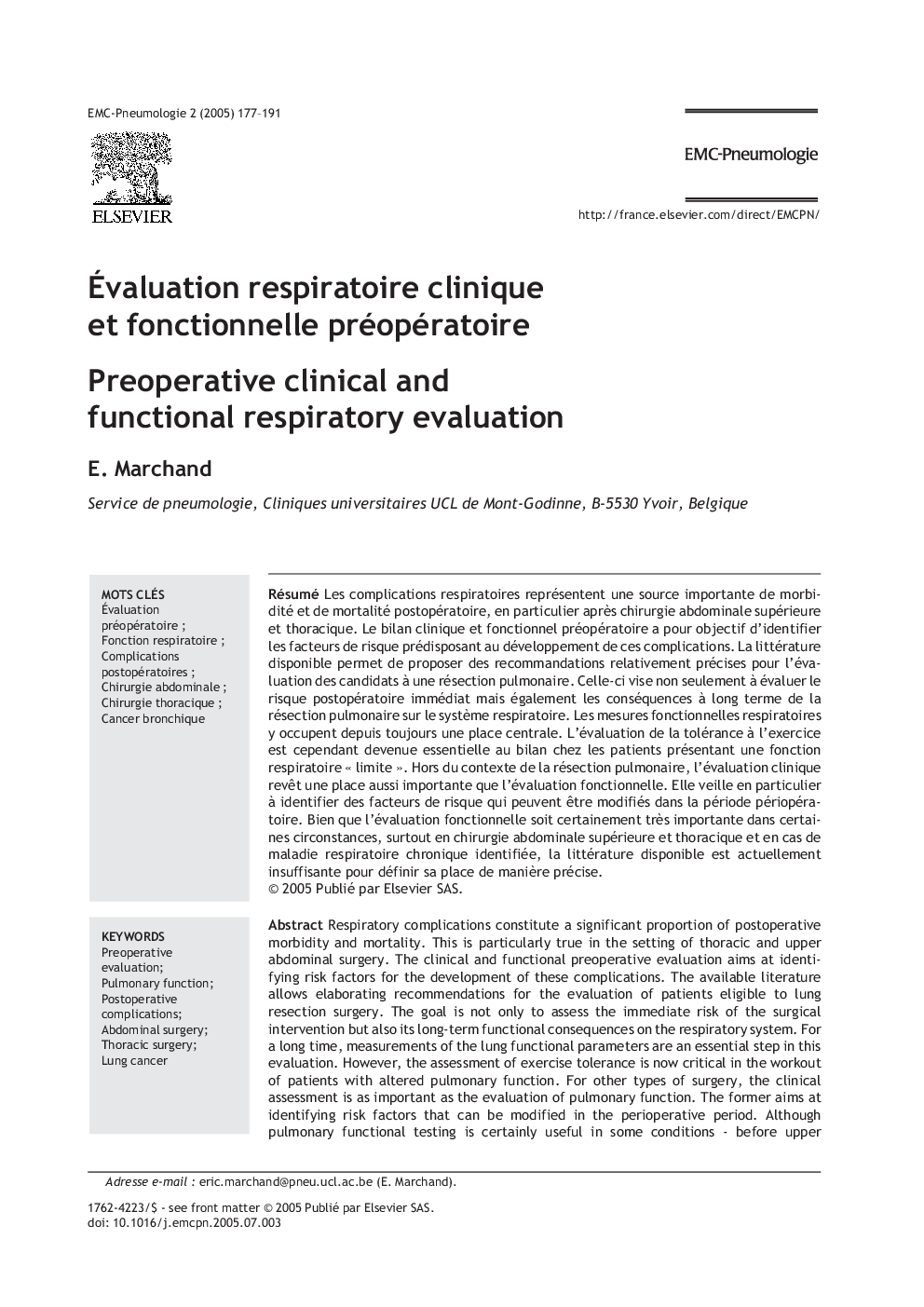| Article ID | Journal | Published Year | Pages | File Type |
|---|---|---|---|---|
| 9385111 | EMC - Pneumologie | 2005 | 15 Pages |
Abstract
Respiratory complications constitute a significant proportion of postoperative morbidity and mortality. This is particularly true in the setting of thoracic and upper abdominal surgery. The clinical and functional preoperative evaluation aims at identifying risk factors for the development of these complications. The available literature allows elaborating recommendations for the evaluation of patients eligible to lung resection surgery. The goal is not only to assess the immediate risk of the surgical intervention but also its long-term functional consequences on the respiratory system. For a long time, measurements of the lung functional parameters are an essential step in this evaluation. However, the assessment of exercise tolerance is now critical in the workout of patients with altered pulmonary function. For other types of surgery, the clinical assessment is as important as the evaluation of pulmonary function. The former aims at identifying risk factors that can be modified in the perioperative period. Although pulmonary functional testing is certainly useful in some conditions - before upper abdominal surgery and thoracic surgery and in patients with identified chronic respiratory diseases -, the currently available literature is insufficient for precisely defining its place.
Keywords
Related Topics
Health Sciences
Medicine and Dentistry
Pulmonary and Respiratory Medicine
Authors
E. Marchand,
